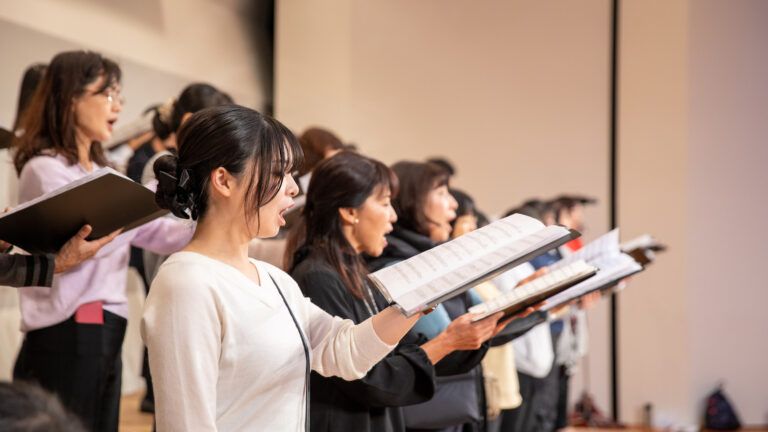Long for a better way to express yourself in prayer? Feeling unable to articulate in prayer the things that are in your heart? Sensing that something is missing in your prayer life? It could be music.
Not that you don’t sing. Not that you don’t enjoy music. Not that your church’s worship services aren’t filled with good music.
It just may be that you haven’t discovered the rich intersection of song and prayer. You sing. And you pray. But you’re missing out if you don’t also pray while you sing.
Because I have been praying-while-singing since I was a teenager, I forget that not everyone has developed (or continued to practice) this simple but rewarding skill. It takes no practice. It requires no preparation. It simply calls for (probably) a little more concentration than usual. Here are 5 tips:
1) Notice when hymns are prayers.
Notice what the words of the hymn or song are saying. Obviously, not all hymns and songs are prayers. Some teach, some testify, some inspire. But many are prayers (such as “I Need Thee Every Hour,” “Break Thou the Bread of Life,” and “Your Love Never Fails”).
2) Pray the hymn.
When you select or encounter a song that is written as a prayer—like “Have Thine Own Way” or “Oceans” (“Spirit lead me where my trust is without borders”)—concentrate on not just singing the words but praying them from your heart.
3) Close your eyes.
If you know the words, close your eyes in order to better focus your attention on what you’re singing.
4) Tweak the wording.
Adapt the song’s wording to make it more personal or applicable to you. You may want to change the “thees” and “thines” of some hymns to “yous” and “yours.” Or refine a line or two; for example, in some worship songs that express the sentiment, “You are all I need” (which I often trip over, since God created us with valid physical and emotional needs), I will quietly revise the words to something like, “You meet all my needs” or “I need you most of all.”
5) Do what your sing.
In private worship (or if it won’t be too much of a distraction to do so in public worship), do what you’re singing. That is, if the song says, “I lift my hands to you,” try lifting your hands. If it says, “Kneeling before you,” then kneel.
Of course, maybe you already do most or all of these things. Maybe it is second nature to you to pray while you sing (in fact, that’s why many people find such blessing in music). If so, keep it up.
But if this is all new to you, give it a try, and see if you don’t find new energy and expression in prayer by borrowing the words of the great hymnwriters and songwriters of the Church.





